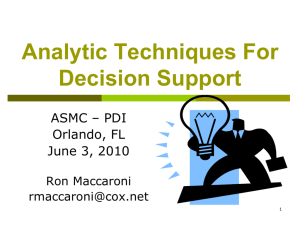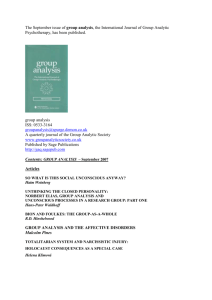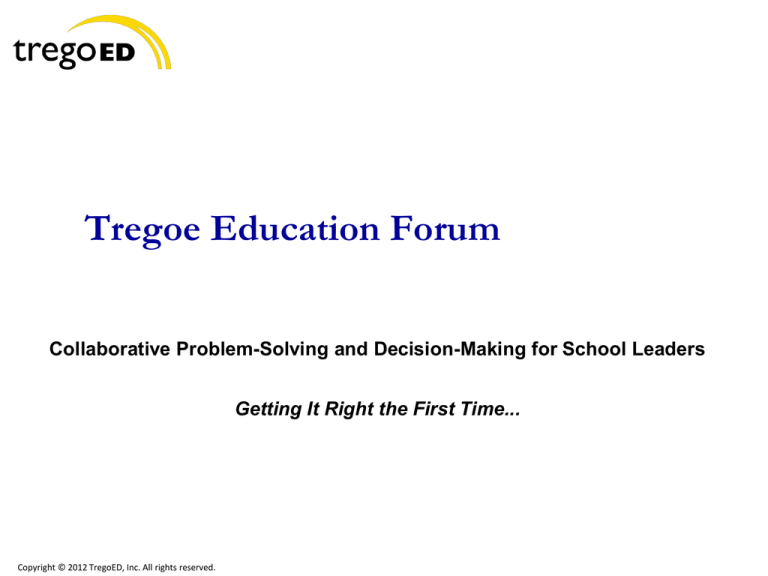
Tregoe Education Forum
Collaborative Problem-Solving and Decision-Making for School Leaders
Getting It Right the First Time...
Copyright © 2012 TregoED, Inc. All rights reserved.
Does an organization’s success
and reputation depend upon the
ability of individual leaders and
the organization to make quality
decisions?
What is an excellent decision?
Copyright © 2012 TregoED, Inc. All Rights Reserved.
2
What TregoED Does…
Teach systematic thinking strategies that help school
leaders improve their capacity for collaborative
problem-solving and decision-making
Easy to follow steps built around good questions
Makes thinking visible and rational
Provides framework for gathering and analyzing relevant data
Easily transferable
Develops consensus based solutions.
3
3
Why is it Difficult to Make Smart
Choices and Get Good Results??
Less rich, face to face, real time communication
Constant bombardment of fragmented information
“Last in, first out” priority setting
Flat, lean, reduced staffing and help
Quick agreement and consensus are critical…
but it is critical that we get it right the first time!
Copyright © 2012 TregoED, Inc. All rights reserved.
4
The Leadership Dilemma
The critical question is always “what is important for
us to know and do right now!!”
The answer always requires disciplined thinking…
•A set of core strategies….a framework
•“Go-to” strategies that you can depend on.
****TregoED Analytic Processes
Copyright © 2012 TregoED, Inc. All Rights Reserved.
5
“What are the Issues that Need to be
Resolved in Order to Have a Great 2014—
2015 School Year?”
Difficult Decisions?
Problematic Changes?
Reoccurring Problems?
New Program Implementation?
Copyright © 2012 TregoED, Inc. All rights reserved.
6
What makes the resolution of these types of
issues difficult?
Copyright © 2012 TregoED, Inc. All Rights Reserved.
7
Process
“RESULTS”
THEN A
MIRACLE
OCCURS
GOOD WORK,
BUT I THINK WE
NEED JUST A
LITTLE MORE
DETAIL RIGHT HERE!
(author unknown)
Copyright © 2012 TregoED, Inc. All rights reserved.
8
The “Pathetic Reality”…
When we do not have a conscious process
to follow,
every new challenge has to be seen as
different… one of a kind…
thus requiring a unique strategy or
approach.
Copyright © 2012 TregoED, Inc. All Rights Reserved.
9
If We Don’t Use a Rational Process:
1. Rush to act without adequately understanding the problem
2. Turn our attention elsewhere
3. Assume that solutions that have worked elsewhere, or have
worked in the past, will work again
4. Make decisions without the support and/or adequate
involvement of key stakeholders
5. Poorly implement the solutions or plans that have been
developed
Copyright © 2012 TregoED, Inc. All rights reserved.
10
Fighting Back…finding Success
Success comes when there is collaboration
by…
» having the “right” people,
» applying the “right” information,
» to the “right” issues,
» at the “right” time.
11
Five Essential Requirements
1. A common language to describe and discuss issues
2. A quick way to agree upon and track priorities
3. A clear filter for sifting out the information that
matters
4. A set of shared logical processes for solving
problems and making decisions
5. A visible action plan for implementation and
assignment of responsibilities.
12
Different Situations, Different Thinking Patterns
1. Getting Priorities Straight and Clear
•
What’s going on? What should I do about it? What is most important?
Whose help do I need?
2. Making the Best Choice
•
What should we do? What is the best course of action?
3. Addressing the Uncertainty about the Future
•
What lies ahead? What could go wrong? What could go well? What
should I do now to prepare for it?
4. The Search for Cause
•
Why did that happen? What will correct it? What will improve it?
Each situation requires different kinds of inputs and thinking
strategy!!!!
Copyright © 2012 TregoED, Inc. All rights reserved.
13
The Process Link between Different Situations
and the TregoED Analytic Processes
1.
Getting Priorities Clear------------Situational Appraisal
2.
Making the Best Choice----------Decision Analysis
3.
Uncertainty about the Future---Potential Problem Analysis
4.
Search for Cause-------------------Problem Analysis
Copyright © 2012 TregoED, Inc. All rights reserved.
14
“Process” Leadership--What is the Pay-Off??
Thinking is made visible---people understand
Establishes a common approach and strategy
Processes are transferable-you do not have to be a content
expert
Develop decisions that “stick”…confidence by stakeholders
Handle conflict in proactive way
Enhances team work
Copyright © 2012 TregoED, Inc. All rights reserved.
15
Analytic Processes for School Leaders:
Ben Tregoe and Cynthia Richetti
ASCD Product Number: 101017
17
17
Contact Information
Jim Coles, Leadership Development Consultant
jcoles@cesa7.org
920-217-9146 Mobile
18
18

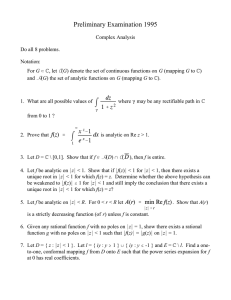
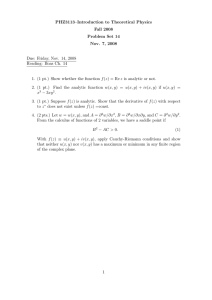
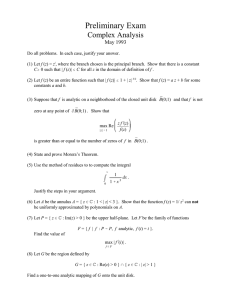
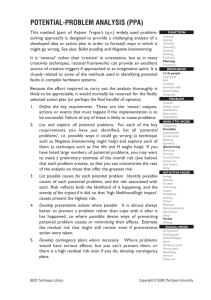
![Mathematics 414 2003–04 Exercises 1 [Due Tuesday October 28th, 2003.]](http://s2.studylib.net/store/data/010415762_1-9e53d350b0430ad1e5431d2ba3c48759-300x300.png)
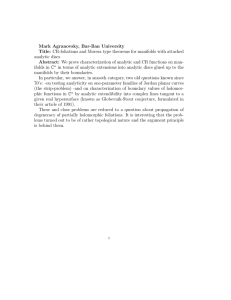
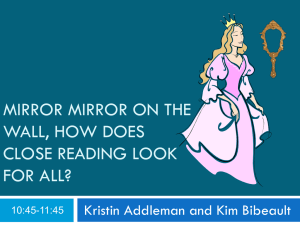
![Mathematics 414 2003–04 Exercises 4 [Due Monday February 2nd, 2004.]](http://s2.studylib.net/store/data/010415765_1-b159664fbd982cf95e1ae146093d034c-300x300.png)
![Mathematics 414 2003–04 Exercises 3 [Due Monday January 5th, 2004.]](http://s2.studylib.net/store/data/010415764_1-3f4084aa6eb8e046b7be83fab4c2a801-300x300.png)

